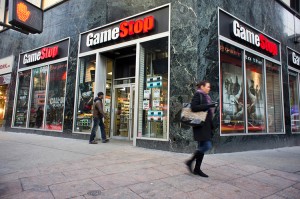What’s Up with GameStop?
Wednesday, February 3rd, 2021Amateur stock investors raised an uproar on Thursday, January 28, when several investment services temporarily restricted stock transactions related to the video game retailer GameStop. What was going on with GameStop, and why was everyone so upset?
It helps to know about an investment strategy called “shorting.” The stock market is very complicated, so let’s try to keep things as simple as possible. “Shorting” is something investors can do when they expect a stock to go down in price. Basically, the investors borrow shares of the stock and sell them at the current price. Once the price goes down, the investors buy the stock back and return it. By selling a stock at a relatively high price and buying it back at a cheaper price, the investors make a profit.
But, you might ask, what happens if the stock price goes up? You guessed it, investors who shorted the stock have to buy it back at a higher price, taking a loss. This possibility makes shorting a stock a risky investment strategy, and investors can get stuck with disastrous losses. This is pretty much what happened with GameStop.
GameStop’s business was not looking good, so adventurous investment partnerships called hedge funds began shorting the company’s stock. At the same time, many amateur investors started investing in GameStop, driving up the stock price.
Some amateur investors probably bought Gamestop stock in the hopes that it was a good investment. Others may have hopped on the bandwagon, hoping to make some money as the stock price rose. At least some investors worked together in an effort to intentionally drive up GameStop prices, making cash and inflicting huge losses on the hedge funds. The technique of intentionally driving up prices to inflict losses on investors who have shorted a stock is called a “squeeze.”
The squeeze in this case was put on by legions of amateur investors coordinating through online social media platforms, including the forum Wall Street Bets on the service Reddit. The investors made their trades using such online services as E-Trade and the app Robinhood. At least one hedge fund suffered devastating losses.
Many small investors cheered the GameStop squeeze as a victory for amateurs over traditional Wall Street powerhouses. The urge to inflict losses on the hedge funds may have been fueled in part by the COVID-19 pandemic. Many small investors seemed angry that large companies and investors had made huge profits during the pandemic, even as millions of individuals lost their jobs.
GameStop is not the only stock that has been used in this way. More traditional investors worry that such trading strategies artificially inflate the value of stocks such as GameStop, creating “bubbles” that can lead prices to tumble when they pop. They also worry that large investors could sell off other stocks to cover their losses, driving down the market as a whole.



